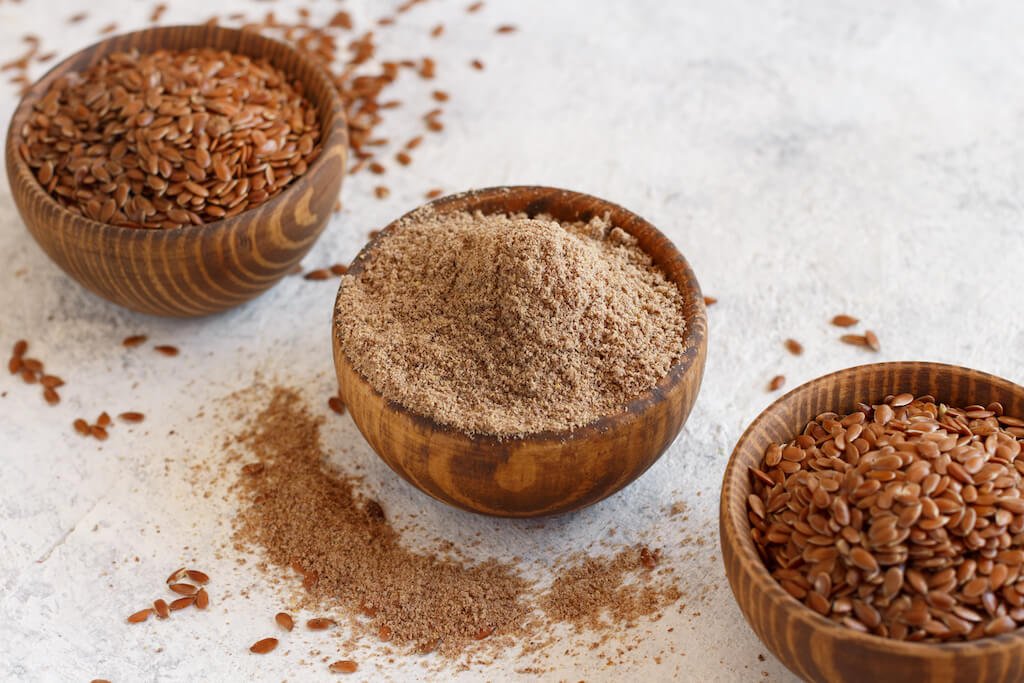In the quest for optimal health for our canine companions, one superfood that consistently tops the list is flaxseed. Known for its high omega-3 fatty acid content, this tiny seed packs a powerful punch when it comes to boosting our dogs’ health. But what makes flaxseeds so special, and how can they benefit your furry friend? Let’s dive into the world of flaxseeds and discover their incredible advantages for dogs.
What Are Flaxseeds?
Flaxseeds, also known as linseeds, come from the flax plant (Linum usitatissimum), a crop grown for its oil-rich seeds and fiber. These tiny seeds are a powerhouse of nutrients, including omega-3 fatty acids, fiber, and lignans, making them an excellent addition to a healthy diet for dogs.
The Omega-3 Power
Omega-3 fatty acids are essential fats that your dog’s body cannot produce on its own. They play a critical role in cell membrane structure and function, supporting healthy skin and coat, promoting heart health, and aiding in the development and function of the brain and eyes. Flaxseeds are particularly rich in alpha-linolenic acid (ALA), a type of omega-3 fatty acid that can help combat inflammation and contribute to overall health.
Benefits of Flaxseeds for Dogs
- Skin and Coat Health: Regular consumption of flaxseeds can lead to a shinier, healthier coat and less itchy, dry skin. Omega-3 fatty acids nourish the skin from the inside out, helping to alleviate symptoms of skin allergies and conditions.
- Anti-inflammatory Properties: The anti-inflammatory effects of omega-3 fatty acids can be particularly beneficial for dogs suffering from arthritis or other inflammatory conditions, providing natural pain relief and improved mobility.
- Heart Health: Omega-3 fatty acids in flaxseeds can help maintain healthy blood pressure, reduce cholesterol, and support overall heart health, making them an excellent choice for senior dogs.
- Digestive Health: Flaxseeds are a good source of fiber, which can aid in digestion and prevent constipation, ensuring your dog’s digestive system runs smoothly.
- Cancer Prevention: The lignans in flaxseeds have antioxidant properties that may help reduce the risk of certain types of cancer, providing an additional layer of protection for your dog’s health.
How to Incorporate Flaxseeds into Your Dog’s Diet
Adding flaxseeds to your dog’s diet is simple. Ground flaxseed is the most digestible form for dogs, allowing them to absorb the maximum amount of nutrients. You can sprinkle ground flaxseed over your dog’s regular food, incorporate it into homemade dog treats, or mix it into wet food for an extra health boost. Start with a small amount and gradually increase to the recommended dose based on your dog’s size and dietary needs.
Precautions
While flaxseeds are generally safe for dogs, it’s important to introduce them into your dog’s diet gradually to avoid digestive upset. Also, ensure your dog has plenty of fresh water available, as flaxseeds absorb water and can lead to dehydration if not properly hydrated. As with any dietary change, consulting with your veterinarian is recommended, especially if your dog has specific health issues.
Conclusion
Omega-rich flaxseeds are more than just a trend in the health food world; they’re a superfood that can significantly enhance your dog’s health. From promoting a shiny coat to supporting heart health, the benefits of incorporating flaxseeds into your dog’s diet are vast. With their high nutritional value and versatility, flaxseeds are an excellent way to give your dog the gift of health, naturally.
Remember, while the nutritional benefits of flaxseeds for dogs are clear, they should complement a balanced diet tailored to your dog’s individual needs. Always consult with a vet before making significant changes to your dog’s diet, especially if they have pre-existing health conditions. Here’s to a healthier, happier life for our four-legged friends!

























